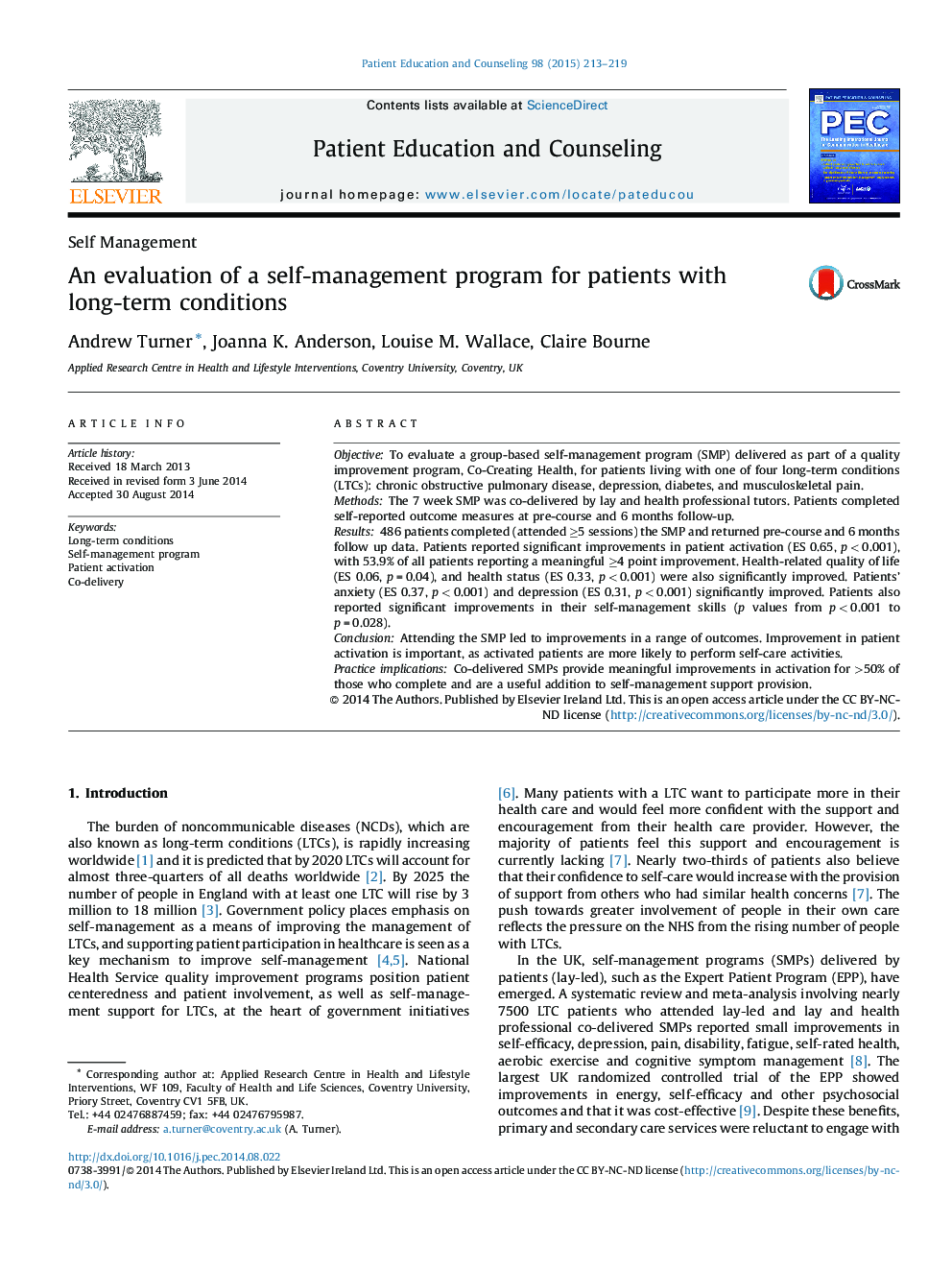| Article ID | Journal | Published Year | Pages | File Type |
|---|---|---|---|---|
| 6153704 | Patient Education and Counseling | 2015 | 7 Pages |
â¢Peer and professional delivered self-management programs improve patient activation.â¢Activated patients are more likely to perform self-care activities.â¢Self-management programs are effective for people living with depression.
ObjectiveTo evaluate a group-based self-management program (SMP) delivered as part of a quality improvement program, Co-Creating Health, for patients living with one of four long-term conditions (LTCs): chronic obstructive pulmonary disease, depression, diabetes, and musculoskeletal pain.MethodsThe 7 week SMP was co-delivered by lay and health professional tutors. Patients completed self-reported outcome measures at pre-course and 6 months follow-up.Results486 patients completed (attended â¥5 sessions) the SMP and returned pre-course and 6 months follow up data. Patients reported significant improvements in patient activation (ES 0.65, p < 0.001), with 53.9% of all patients reporting a meaningful â¥4 point improvement. Health-related quality of life (ES 0.06, p = 0.04), and health status (ES 0.33, p < 0.001) were also significantly improved. Patients' anxiety (ES 0.37, p < 0.001) and depression (ES 0.31, p < 0.001) significantly improved. Patients also reported significant improvements in their self-management skills (p values from p < 0.001 to p = 0.028).ConclusionAttending the SMP led to improvements in a range of outcomes. Improvement in patient activation is important, as activated patients are more likely to perform self-care activities.Practice implicationsCo-delivered SMPs provide meaningful improvements in activation for >50% of those who complete and are a useful addition to self-management support provision.
